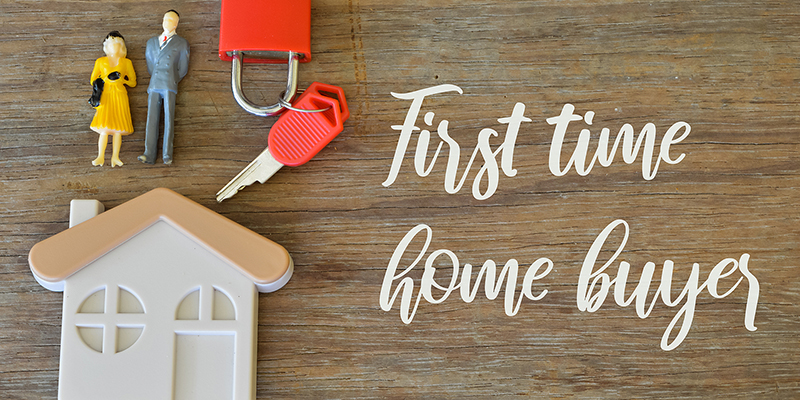If you are a first-time home buyer, you are in the right place. Home buying may seem simple at first glance, but there is much more to it. There are unknown fears, unexpected reveals, the pressure of a long-term monetary commitment, and more. This blog post will reveal 10 secrets every first-time home buyer must know.

Why Your Budget Isn't Just About The House Price
Your budget isn't just the price of the house - it's everything else, too. Think taxes, insurance, and maintenance costs. These can add up fast. And let's not forget about utilities. Bigger homes cost more to heat and cool. Then there's the down payment.
1. Can you afford 20%, or will you need private mortgage insurance (PMI)?
2. Closing costs are another surprise. They can run 3% to 6% of the home's price.
Moving costs also hit your wallet. And let's not forget furniture and repairs. Budgeting isn't just math—it's peace of mind.
The Hidden Costs That Could Throw Your Finances Off Track
Hidden costs can catch any first-time home buyer off guard. Property taxes aren't always obvious upfront. They can vary widely depending on where you buy.
Then there's homeowners insurance, which protects your investment but adds to your monthly bills. Maintenance costs are another reality. From leaking roofs to broken appliances, things wear out.
Don't forget HOA fees if you're moving into a community with shared amenities. And those closing costs? They're not pocket change.
Expect to pay for appraisals, inspections, and legal fees. Moving expenses might surprise you, too. Planning for these hidden costs will save you from financial Stress later. Owning a home shouldn't mean drowning in unexpected expenses.
Location, Location, Regret: How To Pick The Right Neighborhood
The neighborhood matters. It's not just the house.
1. Think about your lifestyle. Do you want peace or city buzz? Check the schools, even if you don't have kids. Good schools boost home value.
2. Look at crime rates. Feeling safe is priceless.
3. Visit the area at different times. It might be quiet now but noisy later.
4. Check the commute. Long drives can drain your energy fast.
5. Are there parks, stores, and restaurants nearby? Convenience is key.
6. Talk to the neighbours. They know the area best.
A first-time home buyer should think beyond the walls. A dream house in the wrong place can feel like a mistake.
Why Pre-Approval Is A Game-Changer (And How To Get It Right)
Pre-approval isn't just paperwork—it's power. It shows sellers you're serious and ready to buy.
As a first-time home buyer, it helps you understand your actual budget. You'll know exactly how much a lender is willing to offer. This saves time by narrowing your home search. But don't rush the process. Shop around for the best lender and rates.
Gather documents early, such as pay stubs, tax returns, and bank statements. Avoid significant financial changes during this time, as a new car loan or credit card can derail your approval. Pre-approval gives you confidence and an edge in competitive markets.
The Emotional Rollercoaster Of Home Buying (And How To Stay Sane)
Buying a home is exciting, but it's also overwhelming. As a first-time home buyer, you'll feel everything—joy, Stress, hope, and doubt.
One day, you'll find the perfect house. The next, you'll second-guess yourself. The pressure to make the "right" decision can be intense. Bidding wars might push you out of your comfort zone. Delays in approvals could test your patience. It's okay to feel nervous. Take deep breaths and lean on trusted advice. Set clear boundaries for your budget and priorities.
Remember, no house is perfect. Focus on the big picture—a place to call your own.
Inspection Nightmares: How To Avoid Buying A Money Pit
Inspections can save you from regret. As a first-time home buyer, never skip them. Even a beautiful house can hide big problems. Hire a professional inspector, not just anyone. They'll check the foundation, roof, plumbing, and more. Be there during the inspection. Ask questions and take notes. If significant issues are found, don't panic. You can negotiate repairs or a lower price. Minor fixes are standard, but structural problems could cost a fortune later. Review the inspection report carefully. It's your guide to making an informed choice.

Remember, a thorough inspection protects your investment and your peace of mind. No surprises mean no regrets.
Why Your Dream Home Might Be A Fixer-Upper (And That's Okay)
Dream homes come in all shapes and conditions. As a first-time home buyer, don't overlook fixer-uppers. They often cost less upfront and let you customize. You can renovate at your own pace, staying within budget. But know your limits. Some repairs, like plumbing or electrical work, require professionals and can be expensive. Focus on homes with cosmetic issues, not structural problems. Calculate renovation costs before committing.
A fixer-upper is a project, not just a purchase. It requires vision, patience, and planning.
The Truth About Real Estate Agents: Friend Or Foe?
A good real estate agent is priceless, especially for a first-time home buyer. They know the market and can guide you through every step. However, not all agents are created equal. Some prioritize their commission over your needs. Choose one who listens and communicates well. Ask for references and check reviews.
A great agent will help you find homes that fit your budget and negotiate the best deal. They'll also spot red flags you might miss. Be clear about your expectations and stay involved. Trust, but verify. A skilled agent is your ally, not your boss. Together, you can make intelligent decisions.
What You Should Know About Closing Costs Before Signing Anything
Closing costs can surprise first-time home buyers. These fees include loan origination, title insurance, and appraisal charges. Expect to pay 2% to 6% of the home's price. Review the loan estimate your lender provides. It outlines the expected costs. Don't forget prepaid expenses like property taxes and homeowners insurance. Save for these alongside your down payment. Ask your lender if they can roll some fees into the loan. Compare lenders to find competitive rates and lower costs. Understanding these fees prevents last-minute Stress. Closing costs are a necessary step to owning your home. Knowing them upfront keeps you financially prepared.
After The Keys: How To Transition From Buyer To Homeowner Smoothly
The journey doesn't end at closing. After the keys are yours, the real work begins. As a first-time home buyer, prioritize setting up utilities and changing the locks. Create a budget for monthly expenses, including maintenance and repairs. Start an emergency fund for unexpected issues. Get to know your neighbourhood and introduce yourself to neighbours. Take time to unpack and settle in—don't rush the process.
Set goals for home improvements, but tackle them one at a time. Owning a home is a learning experience. Enjoy the journey, stay organized, and embrace the responsibility.





